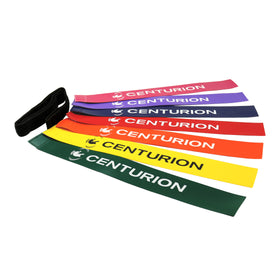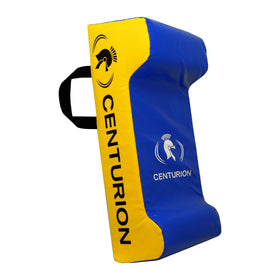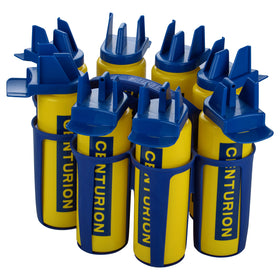Rugby Blog
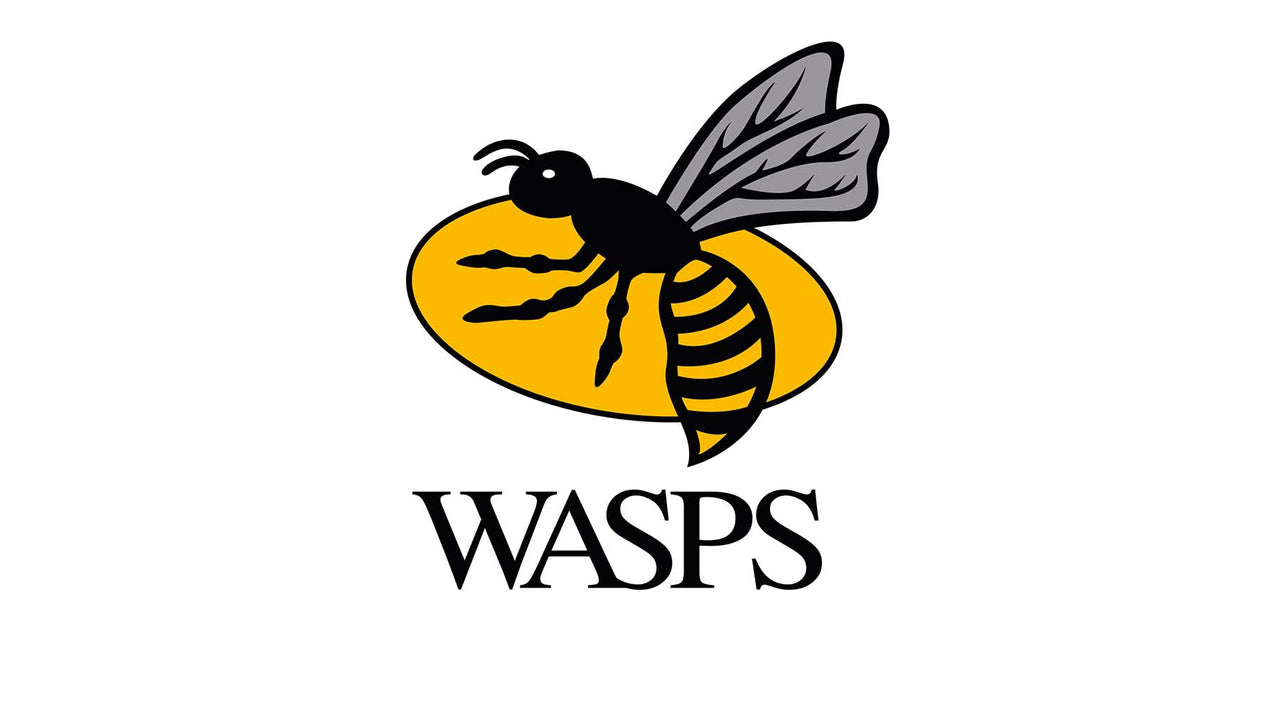
History of Wasps
by Leana Kell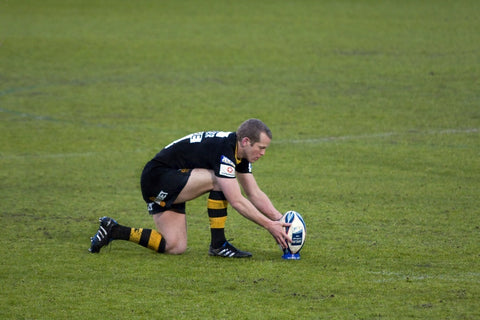
Wasps is an English professional rugby union team and one of the most well-known clubs in the world, with a history that spans almost 150 years.
The Black and Gold Army, as they are affectionately known, has successfully won the European Championships twice and the Aviva Premiership no less than five times, and remains one of the most successful clubs in the UK.
Wasps currently compete in the Aviva Premiership, the European Rugby Champions Cup and the LV=Cup and the team is currently led by Dai Young, Director of Rugby and England internationals.
Below, Centurion takes a look at the history of Wasps from the early beginnings to the team that it is today.
The Early Years
In 1867, the men's first team was derived from Wasps Football Club with playing grounds at Eton and Middlesex Tavern in North London. The club's name was in keeping with the fashion of the Victorian period when it was normal for clubs to adopt the names of insects, birds or animals - it has no other significance. The First President of the club was Mr James Pain who remained with the Club until the Rugby Football Union formed in January 1871, which Wasps were cordially invited to join.
The Club's first grounds were located on Finchley Road in North London, although grounds were rented in various parts of London in the years that followed until 1923 when Wasps moved into Sudbury, where they eventually bought the ground outright and still own it to this day.
The War Years
Before the Second World War the Club celebrated its most successful season in 1930/31 under the leadership of captain Ronnie Swyer, which saw Wasps unbeaten with a total 530 points. Neville Compton formed part of the team joining Wasps in 1925, captaining the side from 1939 to 1947, and becoming the first player to represent the Club at Barbarian level. Compton worked for Wasps for a considerable amount of years until he finally retired in 1988.
During the Second World War, Wasps was graced with a mixture of great talents with many great players coming to Sudbury for Military Service. During this period, the Club became one of the major Rugby Union forces in England and many players went on to gain international recognition such as Pat Sykes (7 caps), Ted Woodward (15 caps, including 6 tries), Bob Stirling (18 caps), Richard Sharp (14 caps), Don Rutherford (14 caps and later RFU Technical Director) and Peter Yarranton (5 caps and 1991 RFU President).
For the Club's 90th birthday, the team enjoyed playing a rare full International XV at Twickenham.
The Centenary Year and Beyond
Wasps celebrated their Centenary year in 1967 playing on the fields of Rugby School where the founder of rugby, Willliam Webb Ellis, originally played in 1823, competing in matches against the Barbarians and Harlequins.
During the 1970s, the club struggled on the field, but by 1979 the arrival of two world-class players, Mark Taylor and Roger Uttley, saw the fortunes of the Club change dramatically. The 1980s brought with it a flood of international honours with nine Wasps players representing England between 1983 and 1985.
England representation hit its all-time peak when in 1989, Rob Andrew captained the full international side against Romania with David Pegler captaining the England B side and Steve Pilgrim captain of the under 21 team - all the teams won.
The 1980s saw many visits to Twickenham where Wasps were finalists of the John Player Cup in 1986 and 1987 against Bath in two very exciting matches that were unfortunately lost.
The 1990s began well when Wasps were crowned English National Champions and competed in the Courage Challenge Cup (former European Cup) where they beat Racing Club de France 23-13.
The Professional Era
The start of the professional era saw Wasps come together as one of the most powerful playing squads in the country. In 1996/97, under the leadership of England and British Lion Lawrence Dallaglio, one of the highlights of Wasps' career was clinching the first professional League Championship. In 1999 Wasps went on to win the Tetley's Bitter Cup, before winning it again in 2000 beating Northampton at Twickenham in front of thousands of delighted fans.
Adams Park Stadium
The 2001/2 season saw the last game played at Loftus Road as the London Wasps agreed to move out of Queens Park Rangers' stadium to allow Fulham F.C. to rent it out for two seasons between 2002 and 2004 while their ground, Craven Cottage was redeveloped. The final game at Loftus Road was an emotional moment for many of the players, staff and officials. Wasps became tenants at Adams Park in High Wycombe from the start of the 2002/3 season, but their subsequent success at the new ground which saw ticket sales rise 31%, meant they did not return to Loftus Road again after Fulham left.
The Noughties
After a slow start, the 2001/2 season received a vital boost when former New Zealand Rugby International and Ireland National coach Warren Gatland replaced Nigel Melville as Director of Rugby. This coincided with the return of many key players from injury including captain Lawrence Dallaglio, and saw Wasps climb from the bottom of the Zurich Premiership to end in the middle - a remarkable achievement which included six consecutive wins.
The following 2002/3 season has been noted as one of the greatest in Wasps' history which began with the welcome signing of Welsh legend Rob Howley and finished with the Club winning the Zurich Premiership and Parker Pen Challenge Cup trophies, winning 18 of the final 21 games and clinching their first English title since 1997, beating Gloucester in the final at Twickenham by 39 points to 3.
In 2003/4, Wasps finished once again at the top of their pool beating Toulouse 27-20 in the final against at Twickenham to win their first Heineken Cup, and then a week later beating Bath to retain their title of England's champion side, and complete a double.
In 2004, the RFU disqualified Wasps from the Powergen Cup for fielding an ineligible player, Jonny Barratt, but it didn't stop Wasps from finishing the season well and retaining the English title for the second time, beating Leicester Tigers in the final at Twickenham. Warren Gatland signed off at the end of the season and was replaced by Ian McGeechan at the start of the 2005/6, a season which saw Wasps win the Powergen Anglo-Welsh Cup beating Llanelli Scarlets in the final at Twickenham.
The next couple of years saw Wasps continue to triumph. In 2007, Wasps Beat Leicester 25-9 to Win rugby union's Heineken European Cup for the second time, then in the 2007/8 season, Wasps went from 10th in the league in October, to beat Leicester Tigers in the Guinness Premiership Final - a dream send-off for retiring Lawrence Dallaglio at Twickenham. Wasps had now won six league titles to become equal with Bath and just one behind Leicester Tigers.
The 2008/9 was not a memorable one for Wasps and after a number of players failed to play to their full potential, the Club eventually finished in seventh place, prompting a number of players such as James Haskell, Riki Flutey, Tom Palmer and Tom Voyce to leave the club. Ian McGeechan was also forced to step down as Director of Rugby, and was replaced by Tony Hanks, a former coach for Wasps. Wasps ended the season without a trophy for the first time in six years.
The 2009/10 and 2010/11 season were again disappointing ones for Wasps and Tony Hanks was soon replaced by current director of rugby Dai Young. The end of the 2011/12 season saw the club go up for sale after Wycombe Council turned down plans for a new stadium; Wasps continued to struggle on the pitch.
The move to Ricoh Arena
In 2014, Wasps finally emerged from what was a perilous situation at times and completed the full purchase of the Ricoh Arena in Coventry after 12 years at Adams Park. Wasps currently share the stadium with tenants Coventry City Football Club. After gaining a 100% stake in the company on 14 November 2014, Wasps played their 1st game in Coventry on 21 December 2014, to complete a 48–16 win against London Irish.
Wasps are currently in third position in the Aviva Premiership 2015/16.


